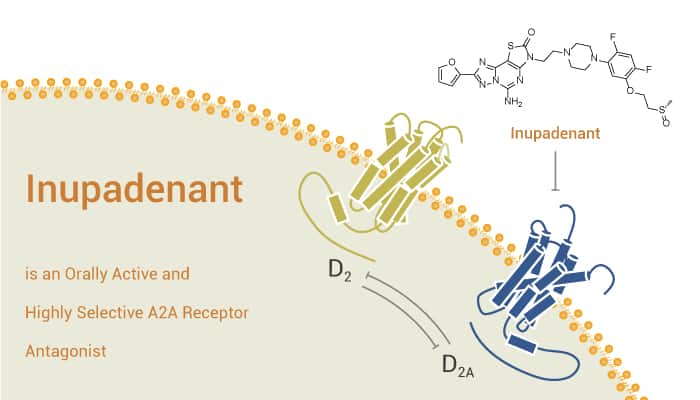Adenosine receptors (AR), including P1 purinergic receptors, belong to G protein-coupled receptors (GPCR). Specifically, Adenosine is an autogenous acid in all tissues and body fluids. Besides, AR contains four subtypes, A1, A2A, A2B, and A3. They are activated by extracellular adenosine and play a central role in a wide range of physiological processes. Moreover, adenosine acts through four specific cell surface receptors. Furthermore, A2AR is a new alternative immune checkpoint. This protein is a member of the G protein-coupled receptor (GPCR) family. Meanwhile, the A2A receptor binds to Gs protein at the intracellular site of the receptor. A1 and A2A receptors regulate myocardial oxygen demand and increase coronary circulation through vasodilation.
In addition, A2A receptors can inhibit immune cells, thereby protecting tissues from inflammation. A2AR is one of the most stable GPCR. Nonetheless, the A2A receptor also exists in the brain and plays an important role in regulating glutamate and dopamine release. A2A receptor is a potential therapeutic target for insomnia, pain, depression, and Parkinson’s disease. Today, we will introduce an orally active, highly selective A2A receptor antagonist, Inupadenant.

Inupadenant is an Orally Active and Highly Selective A2A Receptor Antagonist.
First of all, Inupadenant (EOS-850) is a next-generation adenosine receptor (A2AR) antagonist. Importantly, Inupadenant is not brain-penetrant. Inupadenant has potent anti-tumor activity.
In the second place, Inupadenant is a key driver of immunosuppression in the tumor microenvironment across a broad range of tumors. Particularly, using immunohistochemistry and Western blotting to determine the expression of the A2A receptor in NSCLC tissues, cell lines, and cancer-associated fibroblasts (CAF). Obviously, adenosine A2A receptor antagonists can prevent T cell negative signal transduction and inhibit angiogenesis in tumor microenvironment. By the way, it can also inhibit tumor-promoting, immunosuppressive CAFs and direct inhibition of tumor cells themselves.
All in all, Inupadenant is an orally active, highly selective A2A receptor antagonist.
References:
Laurence Buisseret, et al. Journal of Clinical Oncology. Volume 39, Issue 15_suppl.